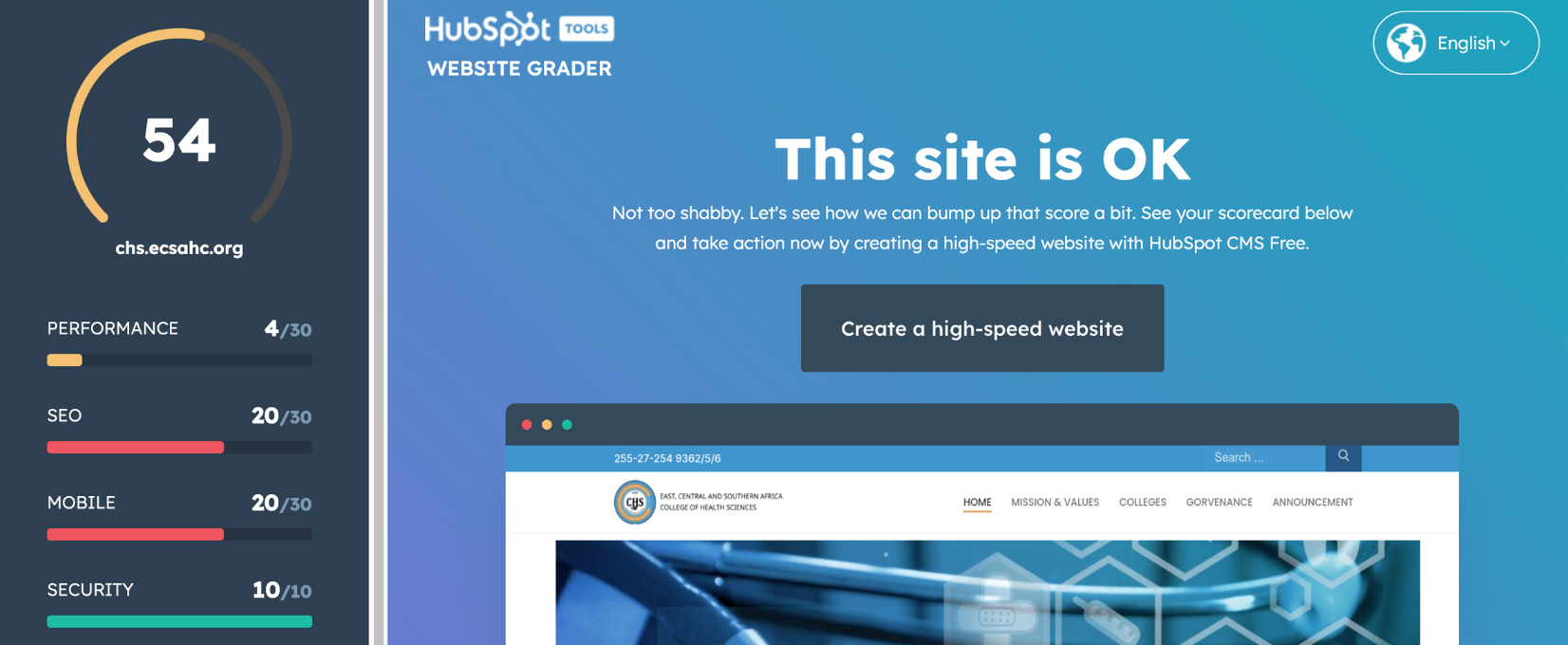The Ask

ECSA-CHS needed a complete overhaul of their outdated website, which suffered from poor navigation, slow loading times, and ineffective presentation of their programs and achievements. They sought a modern, mobile-responsive website to effectively showcase their work, cater to various user groups (students, researchers, healthcare workers), and enhance user engagement.
The Observation
The existing website did not align with ECSA-CHS’s goals and lacked the functionality required to serve its diverse user base. Key issues included poor user navigation, outdated design, and difficulties in accessing vital information, leading to a disconnect in showcasing their impact and research effectively.The Process

- Research & Stakeholder Engagement: Conducted desk research on top healthcare websites and engaged with ECSA-CHS stakeholders, staff, and students to understand their needs.
- User Needs Analysis: Developed key personas and prioritized feature requests based on stakeholder insights.
- Prototyping & Testing: Created low and high-fidelity prototypes, followed by user testing sessions to refine the design and enhance user experience.
- Development & Deployment: Built the website using a modern tech stack (React.js, Node.js, MongoDB, Strapi) with responsive design, optimized performance, and secure access for different user groups.
- Launch & Handover: Conducted comprehensive testing, content migration, and a phased rollout, ensuring a smooth handover to ECSA-CHS staff.
The Outcome
The redesigned ECSA-CHS website now features a modern, clean look that aligns with the institution’s stature as a leading healthcare center. The improved user experience, with simplified navigation and faster loading times, allows diverse user groups to easily access essential information. Programs, research, and achievements are prominently showcased, increasing the visibility of ECSA-CHS’s impactful work. Additionally, the new website is fully mobile-responsive, ensuring smooth functionality on all devices, which enhances accessibility for users on smartphones and tablets. Early performance metrics indicate a significant rise in visitor retention and interaction with key content areas, reflecting a successful digital transformation.